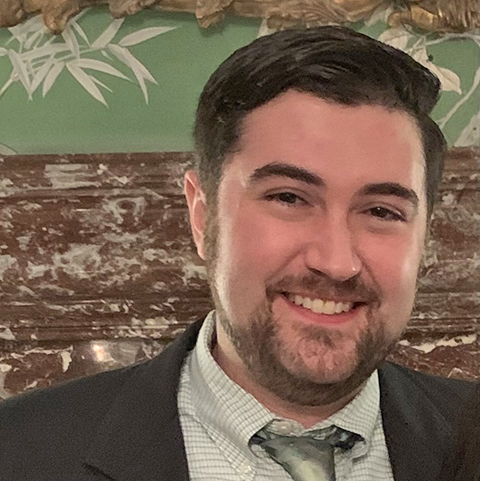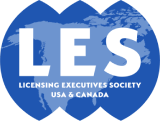
Since March 2022, Kevin Tamm has been senior counsel, IP at SI Group, in Woodlands Texas, near Houston. Before joining SI Group, he was in private practice for nine years at Bracewell LLP, an energy law firm in Houston. Kevin graduated summa cum laude in chemical engineering from the University of Pittsburgh’s Swanson College of Engineering. He earned his JD at the University of Cincinnati College of Law. While in law school, he was a judicial extern for Judge Michael R. Barrett, of the U.S. District Court for the Southern District of Ohio. Kevin has been a member of LES since 2016. He was chair of the Houston Chapter in 2021 and is currently Senior Vice President for Chapters.
Q: Tell us about your work at SI Group.
A: Kevin: As senior IP counsel, I handle all the IP matters for the company. This covers the whole gamut of IP work—international patent drafting, patent prosecution and patent opposition work, litigation, divestitures, licensing, mergers and acquisitions, due diligence on the IP side, and joint development agreements. I work with our corporate attorneys and our compliance attorneys, as well. We also have some trade secrets enforcement matters in different countries, like Brazil. It’s a super interesting position, and because SI Group deals with chemical additives, there’s a lot of organic chemistry involved, as well as a broad range of other technologies, so I get to use my chemical engineering education, too.
Q: What drew you to chemical engineering? And then to law?
A: Kevin: I’ve always had an interest in chemistry; chemistry and math were fun for me. The University of Pittsburgh engineering school had a coop program. So every other semester, I worked full-time at a company called Nova Chemicals that produced polyethylene. I rotated around their chemical plant and learned the actual job of being a chemical engineer. After graduating, I worked in Pittsburgh for about a year doing environmental engineering consulting at Michael Baker, Inc., an engineering consulting company. I think that both the full-time position and the earlier coop work showed me that when you are working in engineering roles, the legal function is almost always involved. So that led me to believe I could apply my engineering experience and education at a more senior level, by pursuing a law degree.
In law school at the University of Cincinnati, I interned at GE Aviation in their environmental group, and later I got a summer associate position at an IP group at a firm where I worked after graduating. So my engineering education, my coop experiences, and working as an engineer were all super helpful in law school.
Q: When did you join LES, and what attracted you to this organization?
A: Kevin: At a law firm where I worked one of the partners who recruited me in 2015 was Jeffrey Whittle, former President of LES USA & Canada. He really promoted the value of LES at the local level to the young IP associates. He wanted to get everybody involved in the Houston chapter, so I joined. I was active as a member, then got involved in leadership and did program planning. I also taught LES courses at the University of Houston and was chapter chair in 2021. So, I’ve been a member for seven years. It’s been a good way to meet people and be involved in education, leadership, and networking.
Q: Do you have any advice for new members about how to navigate the organization?
A: Kevin: Ask people who’ve been LES members for a while what they need help with. Most long-time members are either on a committee or in a leadership position. Contacting speakers, providing educational content, finding sponsors—there are so many ways to help out because LES is run largely by volunteers.
Q: What is your current role in LES?
A: Kevin: As Senior VP of Chapters for LES USA & Canada, I hold a meeting for all the chapter chairs where we discuss participation — what chapters are doing now and what they could do in the future. Participation is an important focus, but we have other initiatives. Following the pandemic, a lot of the local chapters went dormant or went on pause, or had reduced activities. So now, in multiple cities and states, we’re establishing new leadership teams and holding in-person networking events to revive chapters and found new ones. People are expressing a lot of interest organically — that is, reaching out to us saying, for example, “There’s no Tennessee chapter, we think there should be one, how do we make that happen?”
We’re also doing outreach for volunteers in both sector and standards leadership. The national organization relies on local chapters to provide value to members. The major value of LES membership comes from events organized by the local chapter, such as speakers, CLE credits, and networking events. And we held a Young Member Congress meeting earlier this year in Houston. Any young member of LES could attend for free; it was very well attended.
Q What LES project you’ve worked on stands out as the most interesting or the most satisfying?
A: Kevin: One of the most satisfying things I’ve done with LES is serving as Houston chapter chair during the pandemic in 2021. It was difficult, but our chapter was able to stay connected through virtual meetings, webinars, speakers, and education events. I think the Houston chapter was a model for how to operate during the pandemic. I was pleased that, at the end of my term as chapter chair, I could hand over an active chapter to the incoming chair.
Q What do you like to do for fun?
A: Kevin: Even though I live in Houston, where it’s super-hot, I’m really into skiing. Every year I try to go on one or two ski trips. I also like to travel and do as much traveling as possible with the family and go overseas when I can. I would have to say my other hobby is reading books about history.

